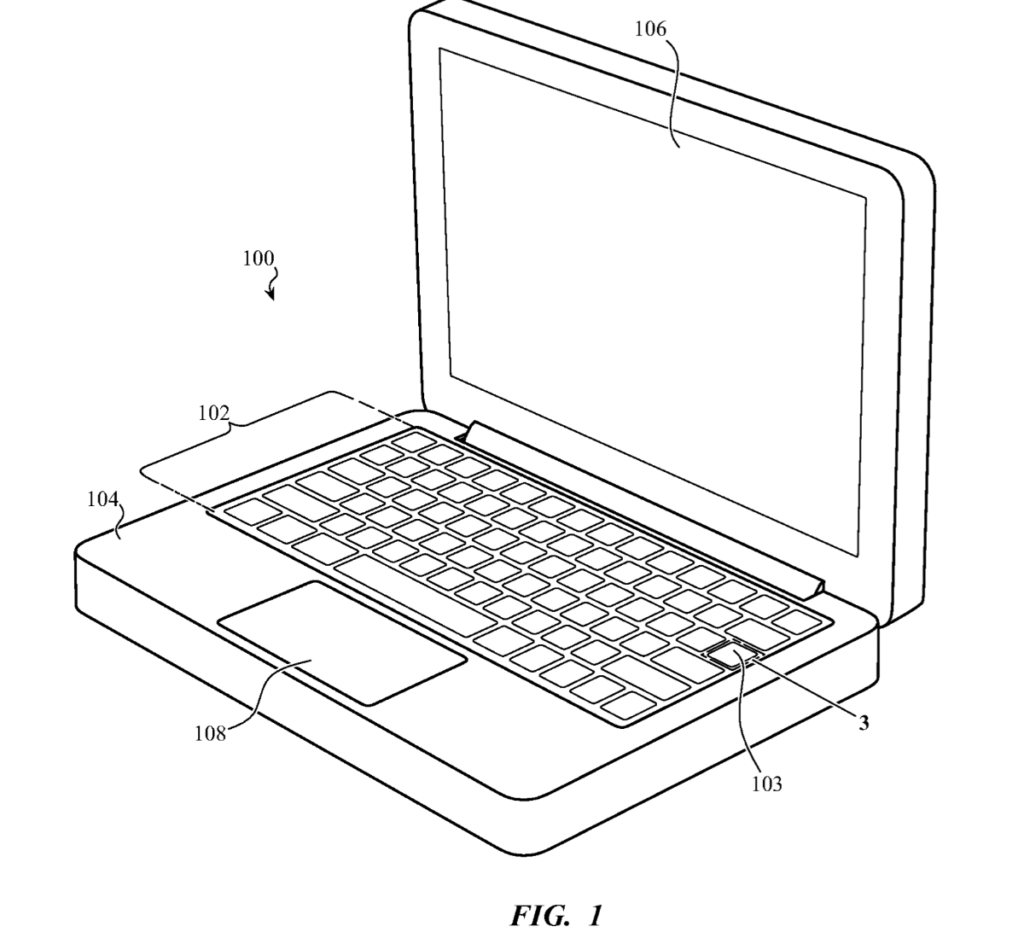Apple has been granted a patent (number 11,087,937) for “interkey support for keyboards.” It involves a flexible layer that would sit atop Mac and iPad keyboards for protection, as well as offering usability features.
About the patent
In the patent filing, Apple notes that keyboards typically involve a number of moving keys. Liquid ingress around the keys into the keyboard can damage electronics. Residues from such liquids, such as sugar, may corrode or block electrical contacts, prevent key movement by bonding moving parts, and so on. Solid contaminants (such as dust, dirt, food crumbs, and the like) may lodge under keys, blocking electrical contacts, getting in the way of key movement, and so on.
Apple also notes that the keys on a conventional keyboard are spaced apart to provide key definition. Key definition is a property of a keyboard that describes how easily a user can tell where a key is located by sight or touch. Typically, strong key definition correlates with large gaps or grooves between the keycaps since those gaps or grooves help orient the user’s fingers on the keyboard.
Apple says that, however, those gaps and grooves make the keys feel rough when a user’s finger moves horizontally across the top of the keycaps since their finger is caught by the top edges of the keys. The tech giant thinks that a flexible layer will offer needed improvements in input devices such as keyboards.
Summary of the patent
Here’s Apple’s abstract of the patent: “Keyboards and other input devices are provided with at least one flexible layer that extends over or under the keycaps. The flexible layer spans interkey spaces and provides finger support and key definition as the user feels the top surface of the keycaps and flexible layer. The flexible layer therefore smooths the top surface of the keyboard, supports fingers during key travel, prevents ingress of contaminants, fluids, or debris into the keyboard, and provides a surface that can be used as a touch interface that coincides with the keyboard.”
Article provided with permission from AppleWorld.Today

